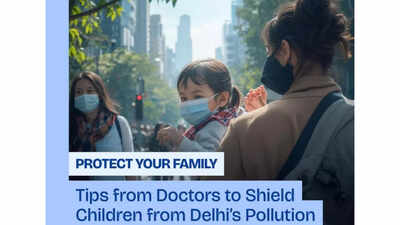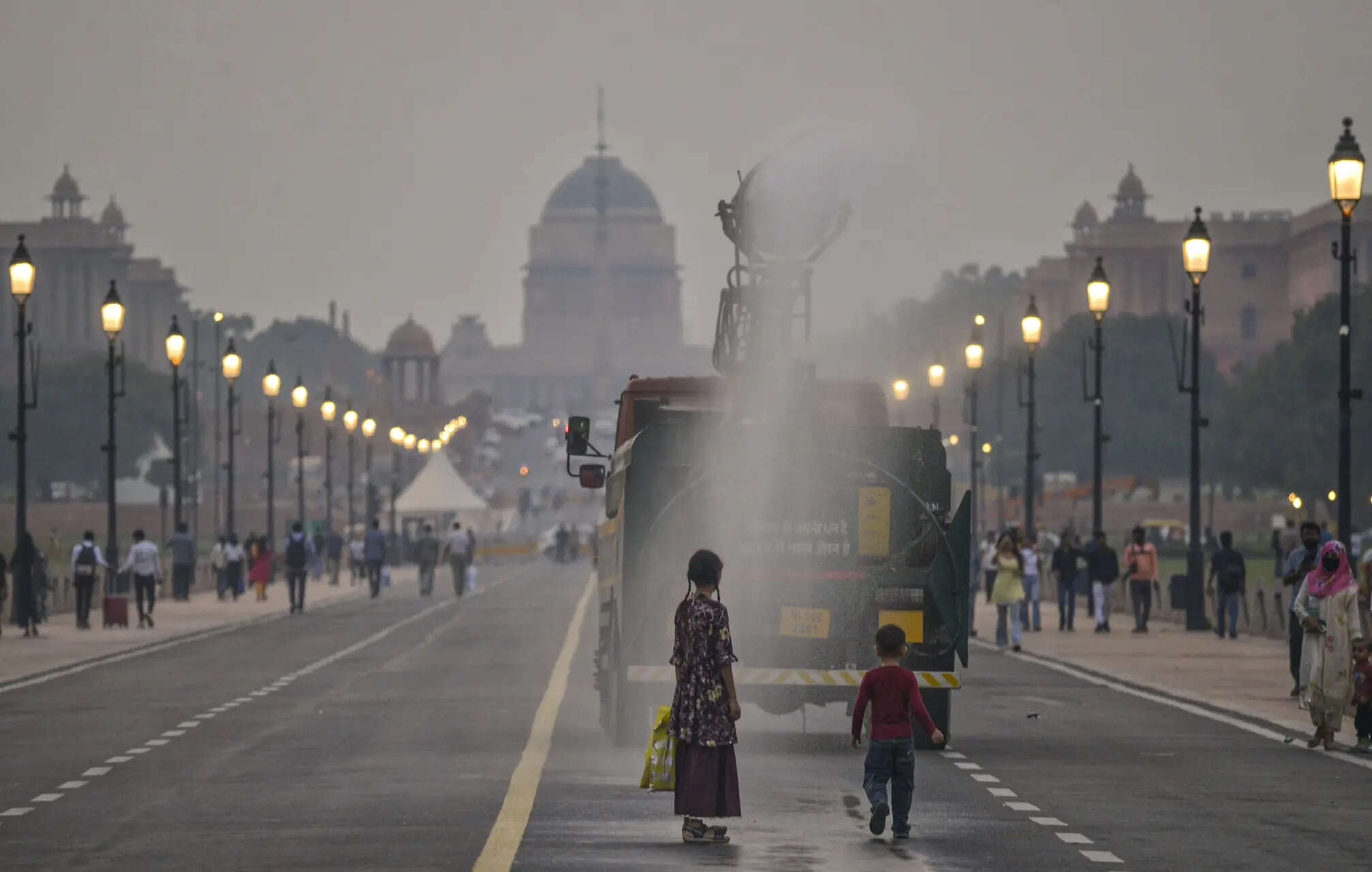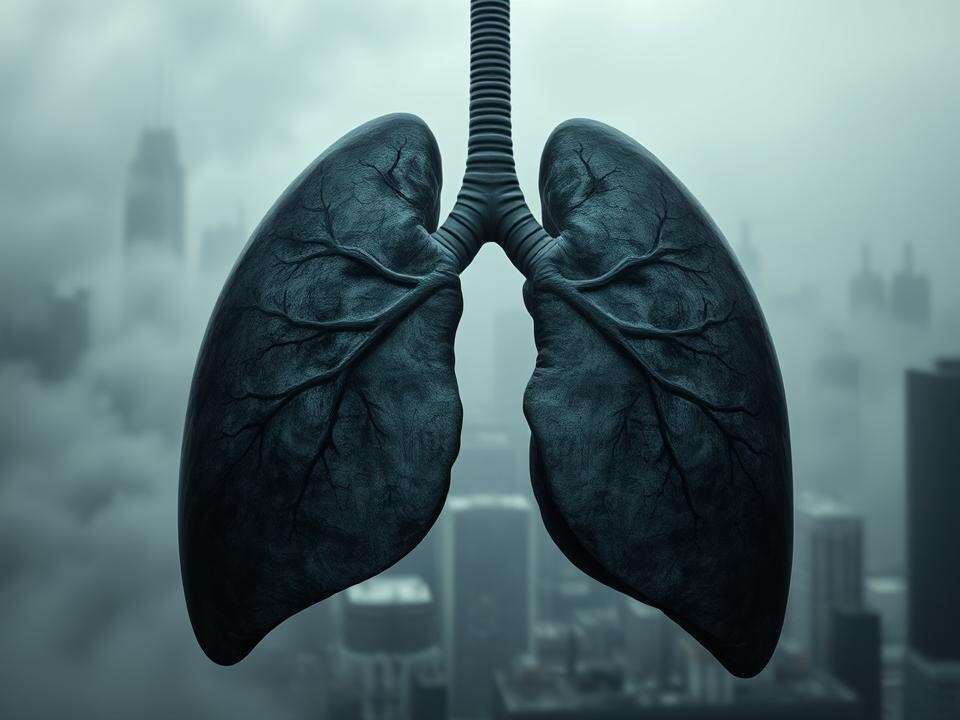ARTICLE AD BOX

Don’t Wait Until It’s Too Late: Here's How to Shield Your Child from Delhi’s Deadly AQI
The air in India's national capital, Delhi, is no longer a seasonal nuisance but a year-round health threat where tiny particles (PM 2.5, PM 10), nitrogen oxides and other pollutants penetrate children’s lungs, enter the bloodstream and even affect brain and heart health.
Scientific studies consistently link air pollution to increased respiratory and systemic illness risks in children, with consequences spanning immediate to lifetime health impacts. Hence, it is crucial for parents, caregivers and policymakers to advocate and implement protective measures, ensuring children grow up free from the choking grip of pollution.
What the experts and major studies actually say
In an interview with the Times of India, Dr Nishant Bansal, Consultant Paediatrician and Neonatologist at Motherhood Hospitals in Noida, shared, "Delhi is facing a poor to severe Air Quality Index ( AQI ), which has become a growing matter of concern for everyone.
This can invite a plethora of health problems not only for adults but even children. It is the need of the hour for parents to stay vigilant and take immediate steps to prevent respiratory, eye and skin problems and allergies in children.
The child's lungs and even immune system may suffer as a result of the increased air pollution."Polluted air can permanently reduce how big and strong a child’s lungs become. According to a 2004 study published in The New England Journal of Medicine, current levels of air pollution have chronic and adverse effects on lung development in children from the age of 10 to 18 years.
This landmark prospective study followed thousands of children and found that higher exposure to traffic-related air pollution was associated with reduced lung-function growth (FEV₁) during adolescence.Dr Bansal added, "Asthma, bronchitis, rhinitis, cough, wheezing, cold, sore throat, stuffy and runny nose and chest congestion are among the respiratory issues that the child may be prone to. The child may experience eye issues such as discharge, redness, and inflammation, as well as blurred vision.
Not only this, the air pollution can affect the skin, resulting in headaches and dry, lifeless skin. Parents should therefore exercise particular caution and heed these important guidelines.
"Long-term improvements in air quality are associated with statistically and clinically significant positive effects on lung-function growth or so studies claim. The follow-up to the 2004 work in a 2015 New England Journal of Medicine study found that children’s lung development improved measurably when communities reduced pollution.
This proves that the harm is at least partly reversible at the population level and that cleaner air benefits kids’ physical growth.

The Shocking Link Between Delhi’s Air and Your Child’s Brain, Eyes and Heart
Bringing his expertise to the same, Dr Sachin Kumar, Director - Pulmonology and Critical Care Medicine at Sakra World Hospital in Bengaluru, said, "The quality of air is declining day by day and it's just not limited to Delhi. The air quality of Delhi has always been in the news. The declining quality has slowly started affecting every age group.
When the Air Quality Index (AQI) stays stuck in the ‘poor’ or ‘severe’ range, the air becomes loaded with fine particles like PM2.5 and PM10.
These tiny pollutants reach your lungs and seep into the bloodstream by entering through the nose or throat, which later on triggers breathing problems, raises the risk of heart complications and worsen existing conditions such as asthma, COPD or heart disease. Even those who are otherwise healthy often end up with sore throats, burning eyes, constant coughing, or tiredness after just a few hours outside."According to him, wWhat makes it worrying is that the damage is not always immediate, it builds up slowly, making clean air a daily struggle rather than a distant concern. Research states that at least 100 million people suffer from chronic respiratory diseases. Some data indicates that up to 140 million people are exposed to air that is 10 times or more the WHO safe limit.Long-term exposure to air pollution impedes cognitive performance in verbal and math tests. A 2018 study in the Proceedings of the National Academy of Sciences (PNAS), used longitudinal, geographically-linked data and showed that chronic pollution exposure is linked to worse cognitive test performance in children and adults.
This is a signal that air affects learning, attention and school outcomes. A recent 2025 Nature Communications study revealed that short-term exposure to particulate matter (PM) impaired selective attention and emotion recognition in controlled tests. Even brief exposures to high PM levels can reduce attention and emotional processing. This is an important finding for parents worried about concentration and mood on bad-AQI days.
What this research means for Delhi families
Pollution harms growth and learning. Repeated exposure in childhood is linked with smaller lungs and worse cognitive outcomes but improvements in air quality benefit kids’ lung growth.
Short spikes trigger asthma and illness where even brief AQI spikes are tied to asthma exacerbations and ER visits but household interventions work. HEPA filtration and behaviour changes like masking and timing outdoor activity, reduce exposure and improve symptoms.
A practical action plan for parents
Dr Kumar suggested, "The first step is to understand that the effects of air pollution build up over time. It’s not just a problem on days when the air looks hazy, long-term exposure slowly weakens our lungs.
While stepping out, wear a N95 mask, as it helps filter out most of the harmful particles floating in the air. Not just outdoor, indoor air quality is equally important. Using an air purifier with a HEPA filter, avoiding incense sticks and candles, and keeping windows open when pollution levels are lower can all help improve the air inside our homes.
"

What Doctors Say About Delhi’s AQI and How to Protect Your Child’s Lungs Today!
He further recommended, "People with chronic breathing problems should always keep their inhalers close and stick to their prescribed treatment plan.
Getting yearly flu and pneumococcal vaccines is also a smart move, since polluted air can weaken the lungs and make it easier for infections to take hold. The most vulnerable group is children, elderly and pregnant women. Based on the AQI levels, that is if it rises above 200, parents should avoid outdoor playtime for kids and promote and encourage indoor physical activity instead.
"Adding to the list of tips, Dr Bansal advised parents to not wait anymore and take immediate action.
He said, "Remember, you should stay vigilant when it comes to the child’s well-being. Try to seek help from an expert and ensure the child is safe. Air pollution is known to create havoc on the child’s health. Parents should ensure that children stay indoors when the air quality outside is poor. Try to encourage the child to wear a mask whenever he/she has to step outside.
The child can even use a scarf to cover the face. Parents should check the air quality of the particular area before venturing out with the child.
Limit outdoor visits and stay back at home, do activities such as reading, indoor games or solve puzzles with the child. Try to install air purifiers at home to help the child breathe freely. The house should be clean and free from dust, mould and allergens. So, follow these essential measures and ensure the child stays healthy. Prioritise the child’s health without any delay."
Protection is possible and meaningful
Polluted air damages children’s lungs, can affect learning and raises the short-term risk of asthma attacks and infections but experts are equally clear that practical household measures (HEPA purifiers, masking, avoiding outdoor exposure during spikes) and broad public-health improvements make a measurable difference for one child and for the next generation as a whole.
Use the checklist above, talk to your paediatrician about tailored measures and consider joining local efforts to demand cleaner air.
For Delhi’s children, prevention today is permanent benefit tomorrow.Tackling air pollution is not just government work, communities should also take responsibility, whether it is using public transport, carpooling or increasing green spaces in neighbourhoods. Air pollution has become both an environmental issue and a serious public health threat. Therefore, promoting planting trees, cutting down on vehicle use and supporting cleaner sources of energy.Note: The information provided in this article is for educational purposes only and is not intended as medical advice. Always consult with a healthcare professional before starting any new medication or treatment.

 2 hours ago
4
2 hours ago
4









 English (US) ·
English (US) ·